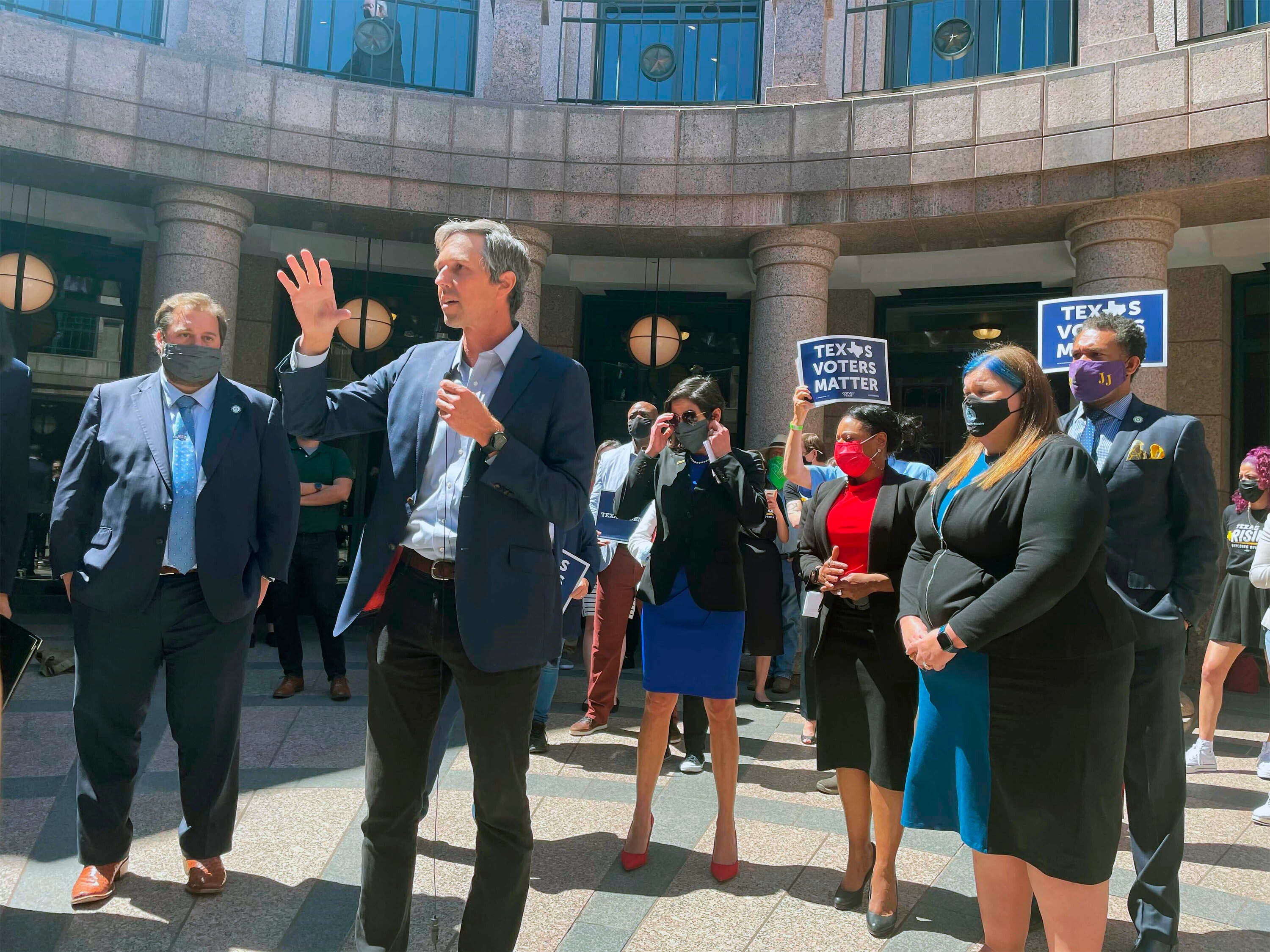New GOP-led voting restrictions head to key vote in Texas
Texas Republicans are setting out to begin passing sweeping new voting restrictions in America's biggest red state

Your support helps us to tell the story
From reproductive rights to climate change to Big Tech, The Independent is on the ground when the story is developing. Whether it's investigating the financials of Elon Musk's pro-Trump PAC or producing our latest documentary, 'The A Word', which shines a light on the American women fighting for reproductive rights, we know how important it is to parse out the facts from the messaging.
At such a critical moment in US history, we need reporters on the ground. Your donation allows us to keep sending journalists to speak to both sides of the story.
The Independent is trusted by Americans across the entire political spectrum. And unlike many other quality news outlets, we choose not to lock Americans out of our reporting and analysis with paywalls. We believe quality journalism should be available to everyone, paid for by those who can afford it.
Your support makes all the difference.Texas Republicans set out late Wednesday to begin passing sweeping new voting restrictions that include reduced options to cast ballots, limits on polling hours and more power handed to partisan poll watchers.
The bill was expected to clear the GOP-controlled state Senate — a key marker in a campaign by Republicans, including Gov. Greg Abbott to impose new restrictive measures over elections in America's biggest red state.
A vote was expected late Wednesday.
It comes after an elections overhaul was signed into law last week in Georgia where opponents have already filed lawsuits and are calling for boycotts of corporations that are silent on restrictive voting measures. Critics of the Texas legislation known as Senate Bill 7 say it particularly targets expanded access put into place during last year's election in Harris County, which is home to more than 2 million voters, controlled by Democrats and a key Texas battleground that includes Houston.
One measure would eliminate drive-thru voting, which more than 127,000 people around Houston used during early voting last year. More than half of those voters were Black, Latino or Asian, said Democratic state Sen. Carol Alvarado.
“Hearing all of that, who are you really targeting when you're trying to get rid of drive-thru voting?" she said.
During hours of debate, Republicans rejected accusations that the bill was designed to suppress turnout.
“None of what we've discussed is voter suppression. And none of what we've discussed is Jim Crow,” Republican state Sen. Paul Bettencourt said.
A similar measure in the House chamber could advance toward a full vote as soon as Thursday.
The bill is one of two major voting packages in Texas that mirrors a nationwide campaign by Republicans after former President Donald Trump made false claims about election fraud.
Voting rights groups say the measures would disproportionately impact racial and ethnic minority voters. In Texas, which already has some of the strictest voting laws in the U.S., the proposed legislation grants more power to partisan poll watchers and eliminates the option to cast a ballot via drive-thru. The bill also includes a provision requiring a doctor’s note for people with disabilities who want to vote by mail, although Republicans signaled during the debate that language could change.
Trump won Texas but by fewer than 6 points. It was the closest victory by any GOP presidential nominee in Texas since 1996, underscoring Republican's loosening iron grip on the state.
The Senate bill cleared a committee last week following hours of testimony by voters. Some said the ongoing coronavirus pandemic is forcing them to choose between their health and their right to be heard by their government after weighing the risk of testifying on the bill in-person at the Texas capitol, where masks are not enforced.
Ofelia Alonso, 25, a volunteer with civil rights advocacy group Texas Rising and volunteer deputy registrar, said Friday she drove hundreds of miles from Cameron County along the U.S.-Mexico border, which has been hit extremely hard by COVID-19, to testify in Austin for the members of her community who couldn't afford the health risk.
“Honestly, because we all work doing voter registration, we know how nonsensical this bill is," Alonso said. "It makes absolutely no sense to criminalize people for wanting to participate in democracy, which should be our goal. It is almost like Texans get punished for coming out and voting in large numbers.”